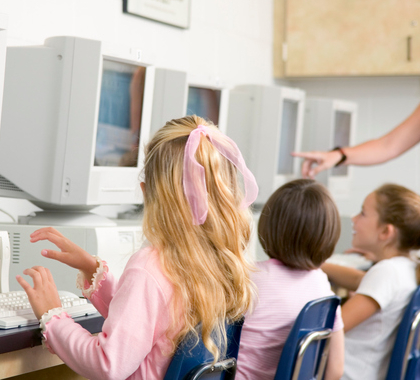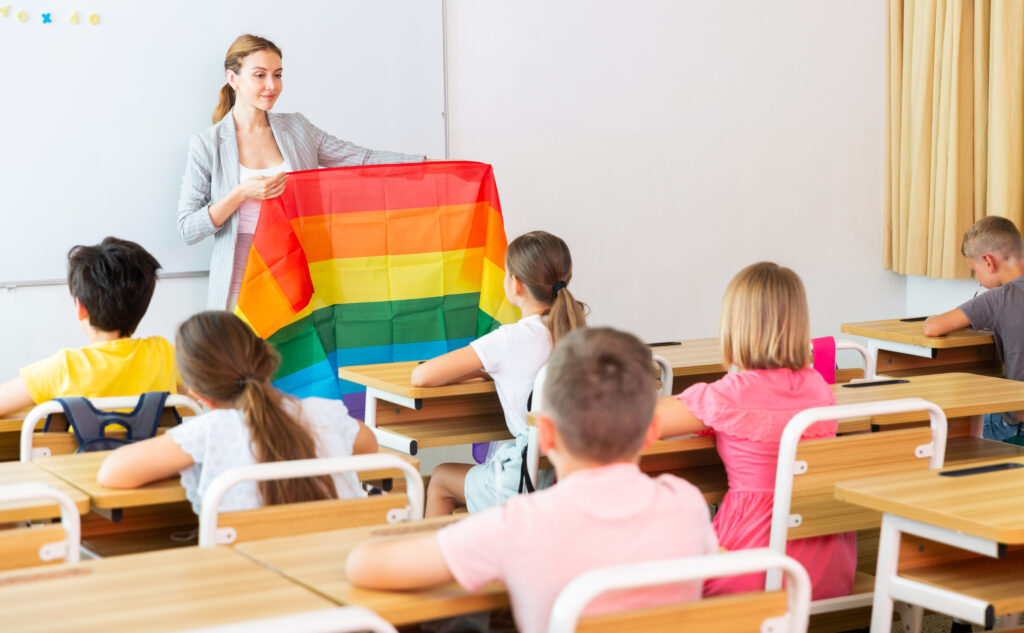Public school students are more likely than private school students to experience problems such as alcohol abuse, bullying, drug use, fighting, gang activity, racial tension, theft, vandalism, and weapon-based threats, according to a recent review of the academic literature published in Journal for School Choice.
“A cross-sectional comparison of self-reported survey questions asked to public and private school principals reveals that private schools may have systematic advantage over public schools,” the report’s authors state. “One systematic advantage for private schools comes in the form of fewer restrictions related to school climate and safety that might make students feel more comfortable and trustworthy.” For example, “private schools are less likely to control access to school buildings during school hours, require students to pass through metal detectors, close the campus for all students during lunch, use random dog sniff checks for drugs, perform one or more random sweeps for contraband, require clear book bags (or ban book bags), and require students to wear badges or photo IDs.”
After controlling for school-level characteristics, the authors report private schools are 8 percentage points less likely than public schools to experience fights among students, as well as 28 percentage points less likely to experience student weapon possession on school grounds, and 13 percentage points less likely to experience racial tension, just to highlight a few examples.
The authors conclude that “future research should explore if our findings translate into better student learning in private schools over time,” and that “policymakers should further consider the role of school choice in reducing crime-related incidence at schools.”
One method policymakers could employ is to implement Heartland’s Child Safety Account (CSA) program. A CSA is a type of education savings account (ESA) for parents who feel, for whatever reason, their child is unsafe at school. A CSA would empower parents to transfer their children immediately to the safe schools of their choice within or beyond their resident public school districts—including public district, charter, and virtual schools—as well as private and parochial schools. CSA funds could also be used to pay for homeschooling expenses.
(The full brief on Child Safety Accounts is available here.)
Under Heartland’s CSA program, students would be eligible for a CSA account if their parents have a “reasonable apprehension” for their children’s physical or emotional safety based on the experiences of their children, including bullying, hazing, or harassment. Parents could also determine the school their child attends isn’t safe after reviewing the incidents-based statistics schools would be required to report.
As things currently stand, the system only effectively allows wealthier families to move their child to a safer school when they feel it is imperative. The freedom afforded to those families should be afforded to all families, as every child deserves the opportunity to escape an unsafe school and realize their full potential in a safe learning environment.
The following documents provide more information about school safety and school choice.
Protecting Students with Child Safety Accounts
https://heartland.org/publications-resources/publications/protecting-students-with-child-safety-accounts
In this Heartland Policy Brief, Vicki Alger, senior fellow at the Independent Women’s Forum and research fellow at the Independent Institute and Heartland Policy Analyst Tim Benson detail the prevalence of bullying, harassment, and assault taking place in America’s public schools and the difficulties for parents in moving their child from an unsafe school. Alger and Benson propose a Child Safety Account program, which would allow parents to immediately move their child to a safe school – private, parochial, or public – as soon as parents feel the school their child is currently attending is too dangerous for their child’s physical or emotional health.
Education Savings Accounts: The Future of School Choice Has Arrived
https://heartland.org/publications-resources/publications/education-savings-accounts-the-future-of-school-choice-has-arrived
In this Heartland Policy Brief, Benson discusses how universal ESA programs offer the most comprehensive range of educational choices to parents; describes the six ESA programs currently in operation; and reviews possible state-level constitutional challenges to ESA programs.
The Societal Impacts of Private School Choice around the World
http://scholarworks.uark.edu/cgi/viewcontent.cgi?article=4215&context=etd
This doctoral dissertation from Corey A. DeAngelis of the Cato Institute concludes that the causal evidence on private schooling and private school choice programs worldwide that access to them has positive effects on student achievement and non-cognitive skills, increases student effort on standardized testing, and can possibly decrease the proclivity for adult criminal behavior in students.
Ten State Solutions to Emerging Issues
https://heartland.org/publications-resources/publications/ten-state-solutions-to-emerging-issues-2018
This Heartland Institute booklet explores solutions to the top public policy issues facing the states in 2018 and beyond in the areas of budget and taxes, education, energy and environment, health care, and constitutional reform. The solutions identified are proven reform ideas that have garnered significant support among the states and with legislators.
A Win-Win Solution: The Empirical Evidence on School Choice (Fourth Edition)
http://www.edchoice.org/wp-content/uploads/2016/05/A-Win-Win-Solution-The-Empirical-Evidence-on-School-Choice.pdf
This paper by EdChoice details how a vast body of research shows educational choice programs improve academic outcomes for students and schools, save taxpayers money, reduce segregation in schools, and improve students’ civic values. This edition brings together a total of 100 empirical studies examining these essential questions in one comprehensive report.
2017 Schooling in America: Public Opinion on K–12 Education, Parent Experiences, School Choice, and the Role of the Federal Government
https://www.edchoice.org/wp-content/uploads/2017/11/2017-Schooling-In-America-by-Paul-DiPerna-Michael-Shaw-and-Andrew-D-Catt.pdf
This annual EdChoice survey, conducted in partnership with Braun Research, Inc., measures public opinion and awareness on a range of K–12 education topics, including parents’ schooling preferences, educational choice policies, and the federal government’s role in education. The survey also records response levels, differences, and intensities for citizens located across the country and in a variety of demographic groups.
Competition: For the Children
https://heartland.org/publications-resources/publications/competition-for-the-children
This study from the Texas Public Policy Foundation claims universal school choice results in higher test scores for students remaining in traditional public schools and improved high school graduation rates.
The Public Benefit of Private Schooling: Test Scores Rise When There Is More of It
https://object.cato.org/sites/cato.org/files/pubs/pdf/pa830.pdf
This Policy Analysis from the Cato Institute examines the effect increased access to private schooling has on international student test scores in 52 countries. The Cato researchers found that a 1 percentage point increase in the share of private school enrollment would lead to moderate increases in students’ math, reading, and science achievement.
Nothing in this Research & Commentary is intended to influence the passage of legislation, and it does not necessarily represent the views of The Heartland Institute. For further information on this subject, visit School Reform News, The Heartland Institute’s website, and PolicyBot, Heartland’s free online research database.
The Heartland Institute can send an expert to your state to testify or brief your caucus; host an event in your state; or send you further information on a topic. Please don’t hesitate to contact us if we can be of assistance! If you have any questions or comments, contact John Nothdurft, Heartland’s director of government relations, at jnothdurft@heartland.org or 312/377-4000.




